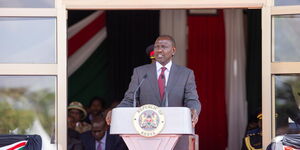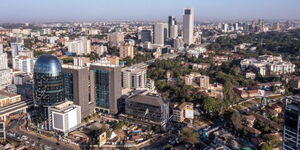Transport Cabinet Secretary Kipchumba Murkomen has confirmed that the number of Kenyans registering planes has gone up since President William Ruto revised the aviation taxation last year.
The CS confirmed the uptick after a breakfast meeting with stakeholders in the sector at Wilson Airport on Thursday.
Murkomen further noted that the increase in the number of registered planes unlocked more job opportunities for Kenyans in the aviation sector.
"Notably, the industry players acknowledged the tax reforms employed by H.E. President William Samoei Ruto in the sector, which have attracted more investors, resulting in increased aircraft registration and job opportunities for young people," Murkomen stated without breaking down the number of registered planes in the country.
The policy Murkomen was referring to was a tax reprieve the sector enjoyed when the Finance Act 2023 took effect in July last year.
In the Act, the Head of State eliminated three taxes on aircraft and parts including exempting importers of aircraft from the 16 percent Value Added Tax (VAT).
The other two taxes that were removed were the 3.5 percent import declaration fee (IDF) and the two percent Railway Development Levy (RDL).
The team behind the decision to strip off the levies argued that the move was made to boost revenue generated by the sector.
The latest available data from the Kenya Civil Aviation Authority (KCAA) shows that 1,659 were registered in the 2022/2023 Financial Year and from 1,624 in the previous period.
In comparison, the number of registered planes in the country stood at 782 in 2022 an increase of 47 from the previous year. The statistics eliminated those owned by the National Police Service (NPS) and Kenya Defence Forces (KDF).
In 2016, the data showed that the total number of airplanes registered in Kenya stood at 1,388, a gradual increase from 2012.
Kenyans' Backlash
When the taxation overhaul was made last year, Kenyans decried the State's decision to remove the levies which had been introduced by Ruto's predecessor Uhuru Kenyatta while increasing taxes on basic needs such as fuel.
Environmentalists and activists were also up in arms over the increase in the greenhouse gas emissions as a result of the directive, arguing that the sector contributed more to climate change.












